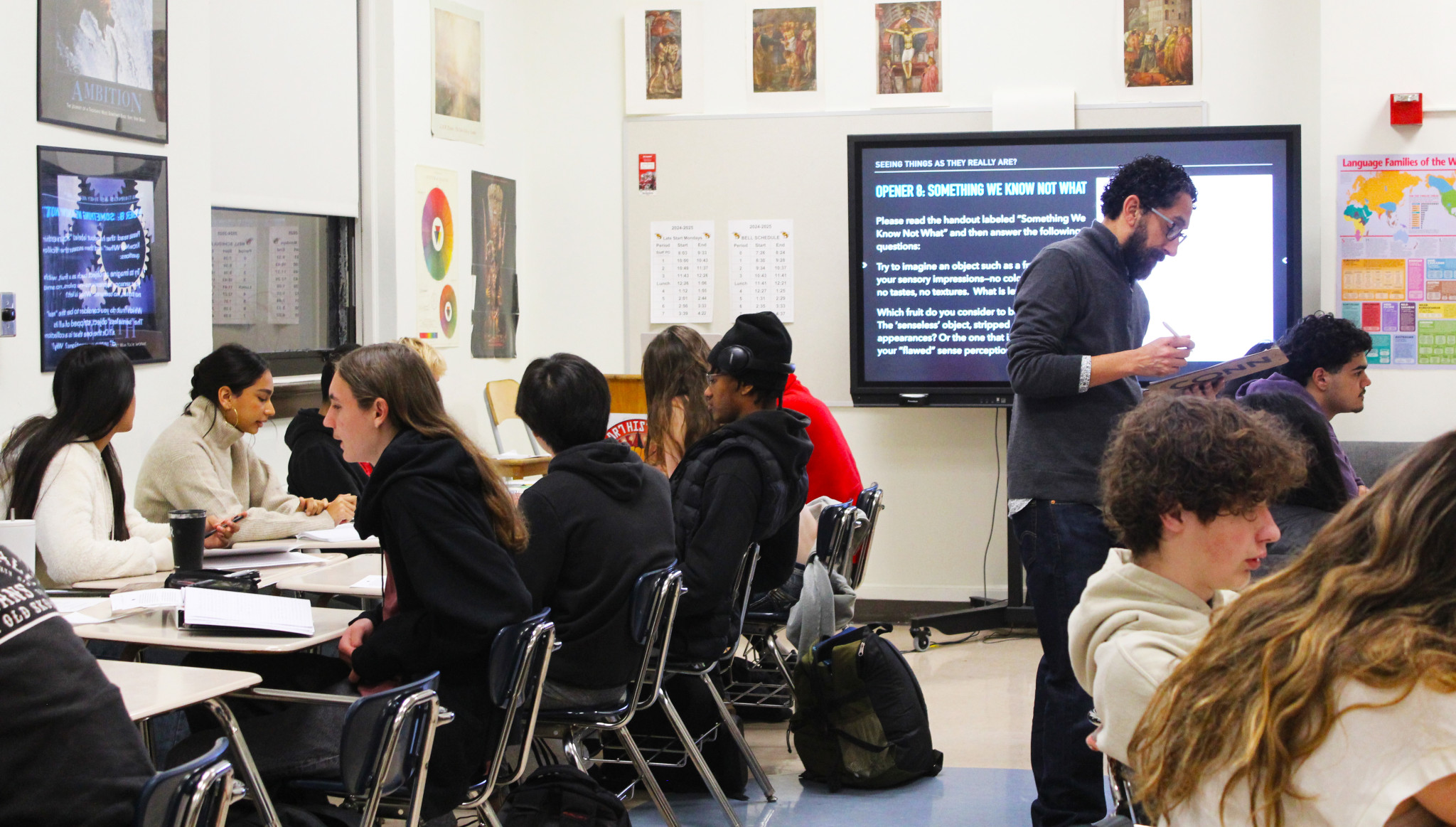“There's very conventional ways of doing things, even in writing an essay, there's a specific structure, and Theory of Knowledge makes us re-examine that structure itself,” Ines Boullosa Dirksen said, “I'd say it's kind of debunking what other classes are teaching us.” Dirksen is a Berkeley High School senior who finished her second semester of Theory of Knowledge (TOK) in December 2024, as part of the Berkeley International High School (BIHS) requirements, describing the class as one that might not fit the typical model of a class curriculum. “I don't think it's like the traditional, Berkeley thing of having (a) feminist or Marxist perspective, it's not really about that. We are really delving into knowledge itself,” Dirksen said, “we're looking at perspective itself and not at different perspectives necessarily.”
While often perceived as overly challenging and quite confusing, this class is the center of the BIHS curriculum learner’s profile. It gives students an opportunity to strengthen their critical thinking skills and question the societal structures present in their everyday lives. Students such as Dirksen, who have already completed a year of Theory of Knowledge in total, voiced how interesting and out of the box this class is.
“You can compare two different perspectives on the same thing, and a lot of times (they’re) perspectives you wouldn't have previously thought of,” BHS senior Covey Lau said, “It definitely had an influence on the way I think about things, it made it kind of easier to think from different perspectives.”
Lau also finished the TOK course last semester. He found that while the class is quite complex, and it can even be difficult to explain the curriculum itself, the class has a heavy influence on student’s perspectives and exposes them to new ways of thinking and comprehension. Researching subjects such as science and math, all while exploring their history, their role in society, and different perspectives on their importance are crucial aspects of this class. Student’s are able to analyze the institutions they take part in, and compare different viewpoints on their part in our society.
“I think the best way I can put it is just like it's a class on critical thinking, it's about questioning structures in society,” Lau said.
Richard Conn has been teaching Theory of Knowledge at BHS for the past 16 years, in doing so he has learned much about the way students actually deal with this new found way of thinking and how they grapple with the challenging curriculum of the class.
“I think it's very easy for high school students who are sitting in all these classes all day long for four years plus middle school, to think that they're passively receiving all of these facts about the world,” Conn said, “And then they realize that a lot of these issues in their math class, in their science class, in their history class, are contentious ideas.”
Using philosophical discussions, Conn attempts to engage students in their own learning, and examine the structures of the ideas they’re being fed everyday. His goal for his students is for them to understand and accept the idea that there won’t always be an answer, even in the most objective subjects like math and science, sometimes there won’t be a final answer to the questions they’re asking, which to him, is what this class centers around, the acceptance of not having a definite answer. He engrains this level of questioning and thinking into his students subconscious, in order to prepare them for college.
“I hope that they take away from the class that the world is more complicated than it appears to be, and that it requires a lot of critical reflective thought in order to make sense of it,” Conn said.
All students in BIHS are required to take this class for one semester in junior year and one semester in senior year, allowing them to fully understand the course’s content and influence in other IB classes. Though TOK is certainly a class out of the ordinary in comparison to traditional classes, it was created in a way that connects its own curriculum to that of other BIHS classes. The assignments, quizzes, and readings in Theory of Knowledge all embody the values of the BIHS learners profile, which makes Theory of Knowledge quite the formative eye-opening class for BIHS students.





